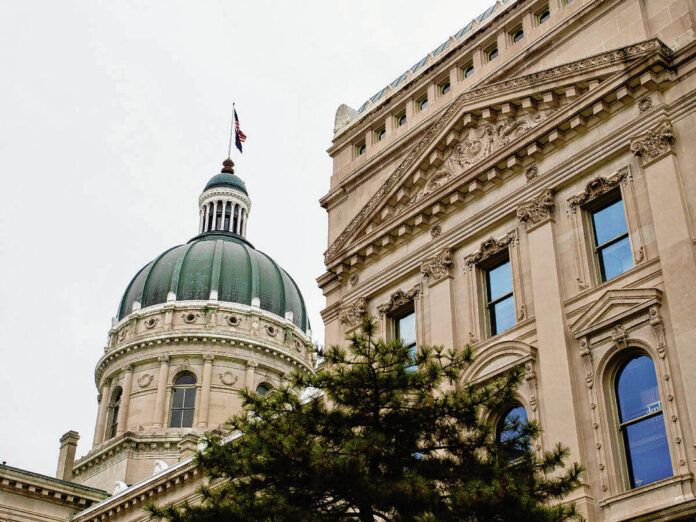House Republicans narrowly voted to strip the Indiana University Kinsey Institute for Research in Sex, Gender and Reproduction of its state funding Wednesday on a 53-34 vote.
Freshman Rep. Lorissa Sweet, R-Wabash, called Alfred Kinsey — who founded the research institution in 1947 — with his reports on human sexuality, a child predator who studied orgasms in minors. The school continued to harbor child predators, she said.
“Who knows what they are still hiding? Could they be hiding child predators? If there’s any place where Chris Hansen needs to catch a predator, it’s Indiana University,” Sweet said, referring to Hansen’s long-running reality show To Catch A Predator.
According to the New York Times, Kinsey solicited information from a convicted pedophile for the orgasm study.
Democratic Rep. Matt Pierce, whose Bloomington district includes Indiana University, decried the “old, unproven allegations” as conspiracy fodder, saying he had personally visited the research facility and found no evidence of sexual predators. Under questioning, Sweet admitted that any investigations into alleged child abuse had been dropped but couldn’t say why police didn’t pursue the case.
“Prosecutors and law enforcement aren’t going to stand by and let kids be abused,” Pierce said. “These are warmed-over Internet memes that keep coming back.”
Pierce said the Kinsey Institute’s research did include studying pedophilia and how it can be treated or prevented.
The school also studies the intersection of disability and sexual health, the use of condoms, relationship dynamics and gender expression.
The amendment to the state budget, which only seven Republicans voted against, strips the institute of funding – but the school isn’t directly funded by the state budget. Instead, Indiana University receives a lump sum of money and decides how to spend it, with some conditions.
But Sweet’s amendment bars any state funding to the Kinsey Institute for its physical location, maintenance of facilities, equipment, utilities, programming and more. Sweet didn’t say how the school could practically follow the mandate.
A request for comment to Indiana University late Wednesday didn’t receive an immediate response.
This story by Whitney Downard is republished from indianacapitalchronicle.com, an independent, not-for-profit news organization that covers state government, policy and elections.





